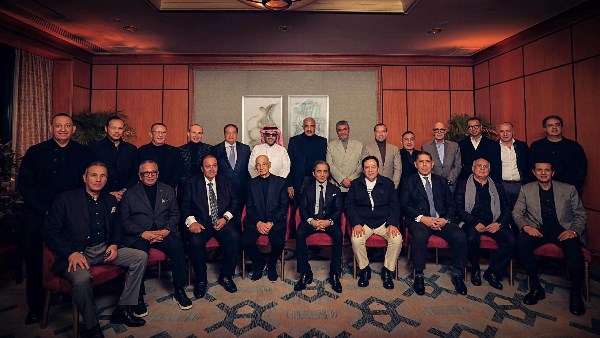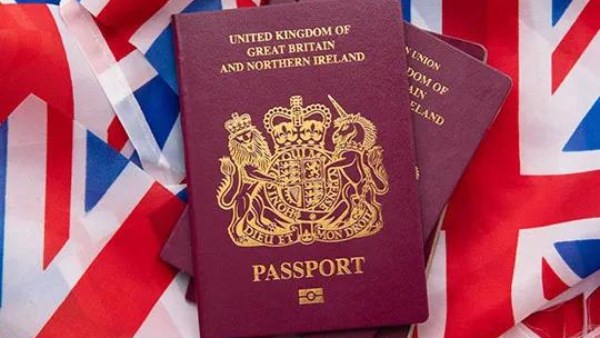
China has already launched a targeted anti-dumping probe on pork imports
EU Moves Ahead With Provisional Tariffs on China EV Imports

The European Union moved ahead with plans to impose provisional tariffs on electric vehicles imported from China that would raise rates to as high as 48%، a step likely to escalate trade tensions with Beijing.
The EU confirmed Thursday that it would apply provisional duties on three Chinese manufacturers that were sampled for its anti-subsidy investigation. State-owned MG maker SAIC Motor Corp. faces a 37.6% tariff on top of the existing 10% rate، while Volvo Car AB parent Geely and BYD Co. will be hit with added charges of 19.9% and 17.4%، respectively.
Other EV producers in China that cooperated with the investigation but haven’t been sampled will be subject to a weighted average duty of 20.8%، while firms that didn’t cooperate will face a 37.6% top-up. Western carmakers such as Renault، BMW and Tesla are also affected، with the US manufacturer currently making up the bulk of EU-bound EV shipments from China.
Subsidizing EV industry
The provisional duties will apply as of Friday، and definitive duties would kick in by November unless the two sides come to some kind of alternative solution or a qualified majority of EU member states block the final move. The EU، which said that talks with China have intensified in recent weeks، concluded in its probe that China subsidizes its EV industry to a degree that causes economic harm to the bloc’s carmakers.
“Those talks with China are ongoing،” Valdis Dombrovskis، an executive vice president of the European Commission، said in an interview on Bloomberg Television with Francine Lacqua. “Should a mutually beneficial solution emerge، we can also find ways then not to apply at the end of the day the definitive tariffs — but it’s very clear that this solution needs to resolve this market distortion we’re currently having.”
The EU move follows a US decision to impose a 100% duty on EVs from China، though shipments are currently close to zero. Canada last month said it’s weighing tariffs as well. While China has threatened to retaliate، the EU and its comparatively well-off consumers represent an important outlet for domestic EV makers battling overcapacity.
China has already launched a targeted anti-dumping probe on pork imports. The findings of an investigation into EU spirits are due early next year but could come anytime، based on what’s happened before. Beijing has warned it could hit European agricultural goods، aviation and cars with large engines. China could also decide to challenge the EU’s probe at the World Trade Organization.
“We are not seeing the basis for retaliation as what we are conducting is indeed in line with WTO rules،” Dombrovskis said.
Electric-only sales
The EU and China have been consulting on a way forward and the two sides plan to continue conversations over the next four months. Chinese EV makers are increasingly pushing into Europe، though their overall market share of electric-only sales is below 10% for now. MG، the former British brand that SAIC revived، has led the charge، followed by the likes of BYD and Nio Inc.
Nio، which sells the luxury ET7 sedan in Europe، said Thursday it may raise prices at a later stage because of the tariffs. Tesla last month added language to its order pages in Europe advising potential car buyers to take delivery of Model 3 sedans ahead of an expected increase in prices starting in July.
The automaker makes Model 3s at a plant in Shanghai and has asked to be subjected to a lower tariff rate than other manufacturers، arguing that it’s benefited from less substantial state support.
WTO Rules
For Brussels، any solution has to be grounded in WTO rules and address the underlying harmful subsidies the probe has identified. Beijing has looked to transform the investigation into a negotiation and has been trying to divide member states by pressuring them bilaterally، Bloomberg previously reported. Some member states، including Germany، have been pushing for a negotiated compromise.
In talks between the two sides، China had asked the EU not to introduce the provisional measures at all — or to consider lower rates based on fewer criteria and then increase them in November if a solution couldn’t be found before definitive tariffs are due، according to people familiar with the matter.
Beijing has also asked whether the rates can be adjusted between now and November if the situation changes as the two sides continue to talk، the people said. Though rates can be tweaked during the process، the EU’s preference is to first establish a common understanding of the facts before exploring a mutually agreed solution that adheres to WTO rules، they added.
Technical talks between the two sides will resume in the coming days، the people added.
The provisional duties are being introduced by a guarantee، and would be collected only if and when definitive duties are imposed، the EU said in a statement last month. The EU is expected to issue guidance on the form the guarantees will take.
Zhejiang Geely Holding Group Co. and BYD declined to comment Thursday on the provisional tariffs going into effect. SAIC didn’t immediately respond to a request for comment.
Imports from China
The tariffs will likely cut imports from China by a quarter، amounting to a value of roughly $4 billion، according to an estimate by Moritz Schularick، president of Germany’s Kiel Institute for the World Economy.
Many European carmakers have made clear they’re opposed to higher tariffs، with companies like Mercedes-Benz Group AG and Volkswagen AG warning against them. China is the biggest market for Mercedes، VW and BMW AG.
BMW CEO Oliver Zipse said the tariffs are a “dead end” and won’t strengthen European carmakers.
“On the contrary: It not only harms the business model of globally active companies، it also limits the supply of electric cars to European customers and can therefore even slow down decarbonization in the transport sector،” he said in a statement.





-1120252475029447.jpg)














